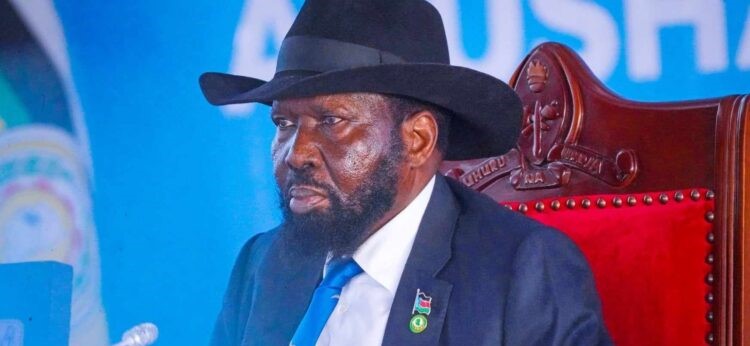The United Nations Commission on Human Rights in South Sudan wants President Salva Kiir to return proposed security law amendments to parliament for revision.
The Commission said in a press release sent to Radio Tamazuj Wednesday that the National Security Service Act (Amendment) Bill, passed by legislators last week, would entrench arbitrary detention and further repression by National Security Service (NSS).
The Commission wants the Bill aligned with South Sudan’s human rights obligations.
“If accepted by the President, these amendments to the National Security Service Act would signal that rights violations by this powerful institution are endorsed not just by the rest of government, but legislators as well,” said the Chairperson of the Commission, Yasmin Sooka.
The Commission has previously reported in detail on human rights violations by NSS, including the illegal prolonged and arbitrary detentions without judicial oversight or accountability, extraordinary renditions of civil society members and political opponents from neighboring countries.
Rights Commissioner Barney Afako stated that as South Sudan prepares for its first elections since independence, the citizenry must be able to exercise their civil and political rights without fear of retribution.
“These security amendments were intended to open up civic space, but in their present form, their effect is the opposite,” he said.
Section 54 of the 2014 National Security Service Act empowers officers to arrest and detain, without a warrant, any person suspected of committing an offence against the State. These offences are broadly and loosely defined in section 7 of the Act, resulting in many people being arrested and detained for legitimate civic and political activities. Although any detainee must be brought before a judge within 24 hours, this rarely happens. Section 55 of the Act empowers officers to arrest after obtaining a warrant, but this provision is rarely used.
On February 5, 2024, South Sudan acceded to the International Covenant on Civil and Political Rights, which includes protection from arbitrary arrest and detentions, and requires that anyone arrested or detained be brought promptly before a judge.
The process of amending the 2014 NSS Act has been underway for over six years, with progress stalling due to disagreements about the arrest and the detention powers. On February 21, 2023, media reports quoted the Minister of Cabinet Affairs announcing that the President and First-Vice President had agreed to remove all NSS powers of arrest. Government documents reviewed by the Commission show that on March 24, 2023, the Council of Ministers also resolved to abolish NSS arrest powers.
However, these positions were not reflected in the Amendment Bill sent to the Transitional National Legislative Assembly on April 28, 2023. On July 3, 2024, during a heated session, a two-thirds majority of legislators passed the Bill, which retains the NSS powers to arrest and detain.
The President can return the Bill to legislators for revision, within 30 days.




